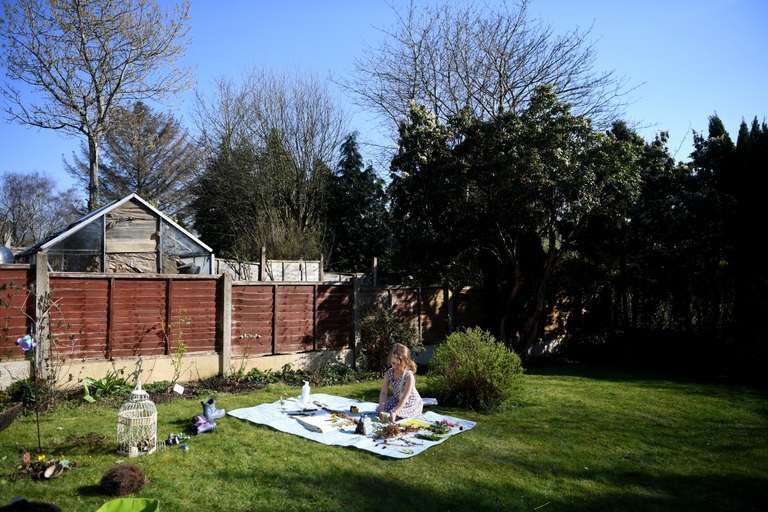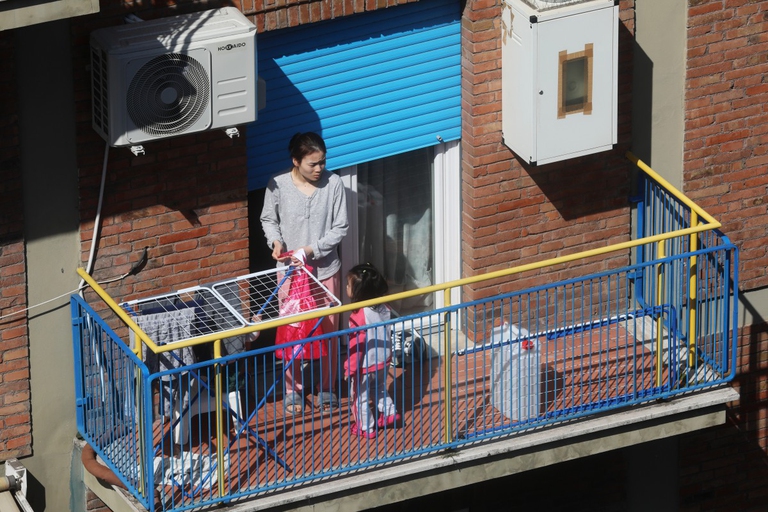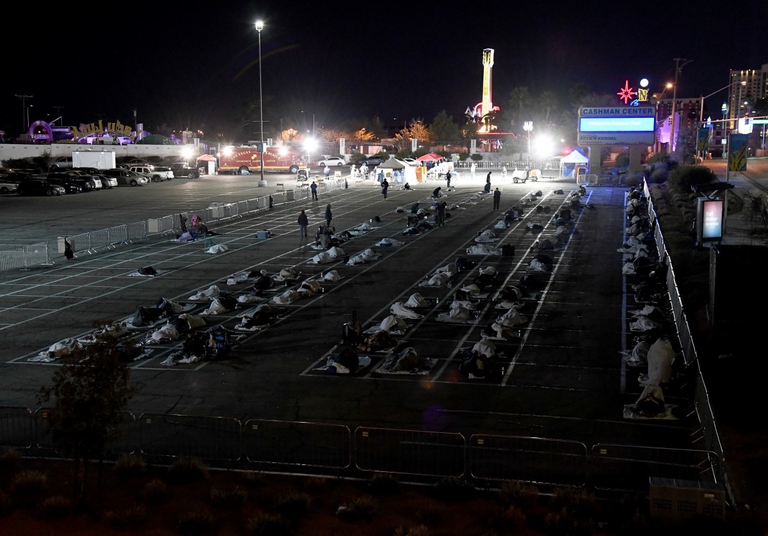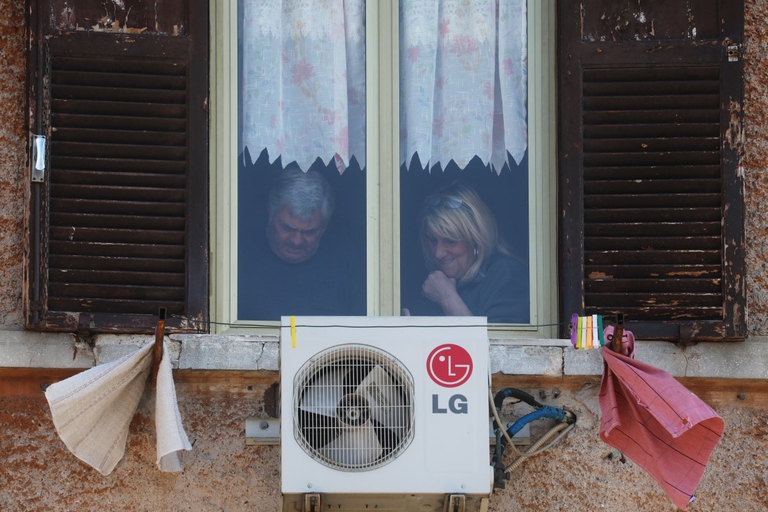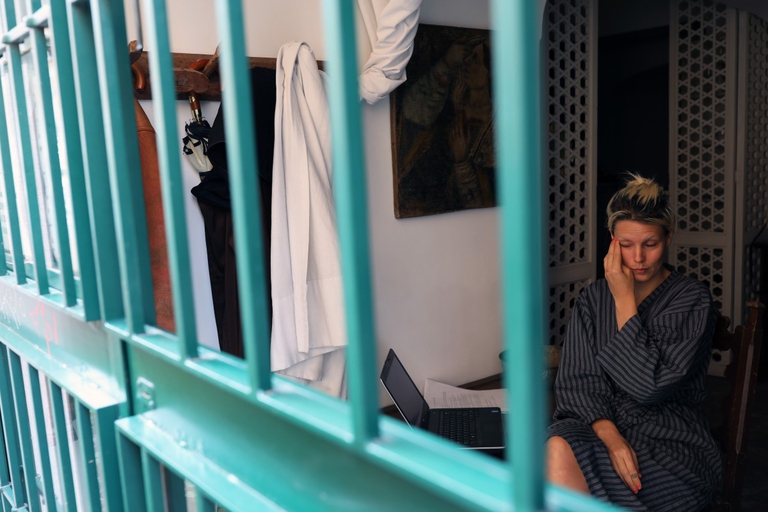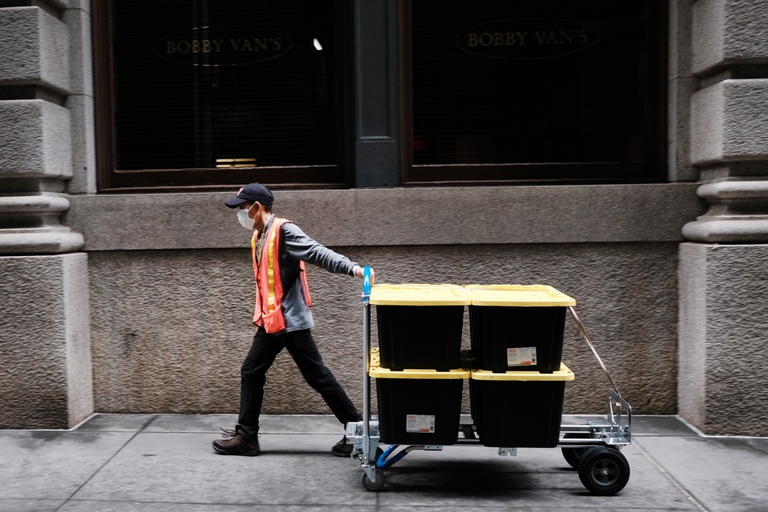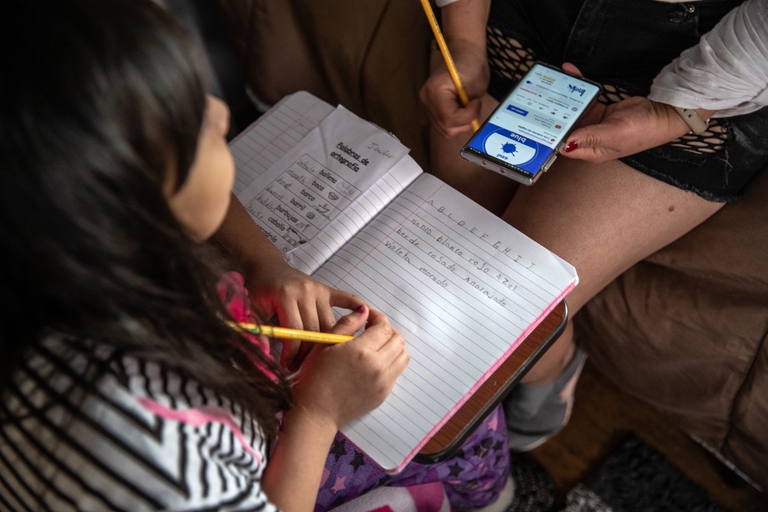
The second wave of the Covid-19 pandemic has shone a painful spotlight on the dire conditions of tea garden workers struggling against poverty in India.
The pandemic and its restrictions are affecting everyone, without exceptions. However factors like housing, income inequalities, gender, access to technology and working conditions are influencing how people experience the health crisis.
Fortitude Ranch locations across the US have been busy over the past few weeks. Here, chalets with underground bunkers and unlimited supplies are provided, as well as wooded areas for walks and even pits where infected bodies can be dumped. These structures are “equipped to survive any type of disaster and long-term loss of law and order”. When entrepreneur Drew Miller launched the business perhaps he was imagining a scenario similar to that of Covid-19. And already twice as many Americans have left their homes to take refuge in these rural idylls compared to last year.
This type of escapism is reminiscent of the nuclear bunker craze that’s taken hold across the world: in California and Australia, companies have seen a massive rise in demand in recent weeks; in Italy, a business specialising in such refuges revealed that its phones haven’t stopped ringing; in England, a wealthy entrepreneur Peter Dawe has opened the doors of his “survival farm” – 600 hectares of land including fields, granaries, mills and animals – to Londoners.
Access to Fortitude Ranches requires a subscription and payment of a yearly fee, whilst nuclear bunkers will set you back tens of thousands of dollars. Dawe hasn’t revealed the price for a stay in his “survival farm”, but judging by the photographs it’s a luxury experience. The common denominator between the examples cited so far is clear: guests require a lot of disposable income.
In Italy the hashtag #stateacasa (stay at home) has become viral over the last month. Appeals have come from relatives, friends and acquaintances, as well as politicians. What’s more, VIPs and footballers have been posting incessantly from their penthouses and villas with gardens bigger than some city parks (which have been closed to the public because of the virus). “Normal people”, bored, lying on their sofa-beds, stuck in one- and two-room apartments, often without a balcony, have had no choice but to listen to these appeals, even empathising with the privileged who’ve been quarantined just like them. Crucially, however, what separates their conditions are several hundred square metres of space in which to move around freely.
What separates their conditions are several hundred square metres of space in which to move around freely.
However, there’s always someone who’s worse off. In Italy, some homeless people have been fined for having nowhere to go during the quarantine. And that’s just the tip of the iceberg in terms of issues that have become starker in the context of their already vulnerable situation. Food banks have closed, shelters have limited access, volunteer numbers have fallen drastically, showers and clothes are no longer available. The confined spaces of a one-room flat with no garden or balcony pale in comparison to the reality of people who not only don’t have a roof over their head but are being treated like criminals for it.
The confined spaces of a one-room flat with no garden or balcony pale in comparison to the reality of people who not only don’t have a roof over their head but are being treated like criminals for it.
The case of prisoners is similar, as many convicts have seen further restrictions on their already claustrophobic living spaces. Outdoor work has been interrupted, as well as indoor visits and many other activities. The 400 migrants who reside in Italy’s permanent repatriation centres, meanwhile, are being detained in total disregard of health protocols. These issues are met with the usual institutional silence, proving that the lives and well-being of certain segments of the population are seen as less important than others.
Societies around the globe are characterised by a steep vertical structure in which differences between the so-called 1 per cent in the upper echelons, those in the middle and the most marginalised, at the bottom, are becoming increasingly apparent.
Societies around the globe are characterised by a steep vertical structure in which differences between the so-called 1 per cent in the upper echelons, those in the middle and the most marginalised, at the bottom, are becoming increasingly apparent. But the differences in how the pandemic is being experienced aren’t only apparent between tiers. Even in the shared spaces inhabited by most people destinies don’t run along the same tracks. On the contrary, stories exposing their vulnerability and precarious conditions abound, highlighting how inequalities are present in every layer of the social fabric.
Since the start of the quarantine in Italy female victims of domestic violence have called support lines at half the usual rate. This is paradoxical in a situation in which increased contact further exposes victims to abuse. In fact, this is probably what’s happening, but total lack of privacy also makes such mistreatment harder to report. And this isn’t the only gender-based issue emerging from the current crisis. States like Ohio and Texas in the US have categorised abortion as a non-essential medical practice at a time in which Covid-19 takes precedence over everything else. Women here have thus found themselves deprived of a fundamental right, one that has been suspended as if it were akin to having a drink in the pub across the road.
Women in Ohio and Texas have thus found themselves deprived of a fundamental right, one that has been suspended as if it were akin to having a drink in the pub across the road.
Other gender-based imbalances are linked to the issue of working from home. On average, Italian women dedicate seven hours a day to unpaid domestic work. Schools closures and the suspension of normal working routines, together with the impossibility of sourcing external support for household activities, have led many women to experience further restrictions of their personal spaces. Care and professional work end up combining and ultimately overlapping, evidence of the fact that inequalities don’t just exist between families but within families as well.
This trend is also noticeable in the labour market. Think of those, such as factory workers, obliged to go to workplaces where the necessary health measures aren’t in place; of the self-employed who can’t work and whose best hope are one-off government grants; of furloughed employees forced to give up a portion of their already low salaries; of daily wage earners relying on the informal economy in developing countries, such as desperate migrant labourers in India. Job insecurity is being laid bare in these turbulent times, with those on the lowest rungs paying the highest price for the ongoing health crisis. It’s estimated that the pandemic will lead to 25 million people becoming unemployed worldwide; a snapshot of a system whose foundations are very fragile and in which the “social elevator” seems to be working, but only going downwards.
A snapshot of a system whose foundations are very fragile and in which the “social elevator” seems to be working, but only going downwards.
Tales of job insecurity are also reflected in the conditions of the children affected by it. Only 76.1 per cent of Italian families had internet access in 2019, a problem partially caused by the distribution network’s scarce capillarity across the national territory. But, often, the make or break factor is the fragility of households’ economic status, where there isn’t enough money to access technology, and even when devices are available, they often have to be shared. We’re hearing stories of parents and children having to share a single computer, used both for working from home and children’s online education, and many people’s smartphones aren’t up to date enough to satisfy these necessities.
As remote learning is praised, the violence of the technological divide becomes clearer than ever. This goes hand in hand with the fact that education is still a privilege rather than a universal right. These stories, full of uncertainty, discrimination and barriers, reveal how a home is a necessary but not a sufficient setting for #stayingathome to be sustainable. There are a myriad other factors that, now more than ever, are weighing on people’s lives and well-being.
These stories, full of uncertainty, discrimination and barriers, reveal how a home is a necessary but not a sufficient setting for #stayingathome to be sustainable.
If there’s one thing that is being repeatedly iterated in these times of quarantine and containment measures it’s that we’re all in the same boat. Of the over three billion people affected by the emergency, no one can go to restaurants, to museums or to the seaside. The quarantine makes no exceptions, everyone has to change their daily habits.
So if it’s true that all of humanity is in the same boat, it’s undeniable that it’s a boat with many cabins, each with a different degree of perceived discomfort.
However, even in a situation as dramatic as the current crisis, the inequalities that plague our society are more visible than ever. So if it’s true that all of humanity is in the same vessel, it’s undeniable that the boat has many cabins, each offering a different degree of perceived discomfort. VIPs with no symptoms have access to tests, while citizens with high fevers are forced to stay in bed, uncertain of what disease they’re fighting. Then there are those who society has abandoned, forgotten in the streets without even a home, forced to live outside the law. Many who experience inequality daily, from gender violence to technological barriers, work insecurity to educational disadvantage, have seen their situation worsen. The pandemic is forcing us to acknowledge how socially fragile and heterogenous our world really is.
The pandemic is forcing us to acknowledge how socially fragile and heterogenous our world really is.
Even when we all share the same destiny, it can manifest itself more or less violently depending on our condition. And in the future, this will likely become even more starkly true. Even once a vaccine for Covid-19 has been developed, there’s the risk that it will become a luxury good, accessible only to those who can afford it – mirroring what has happened with other drugs in the past.
“Pre-existing social vulnerabilities only get worse following a disaster. This is such a perfect example of that,” says Nicole Errett, co-director of a centre on extreme event resilience at the University of Washington. Some say that when this is all over, things will be different, better. But there’s a sense that while the world may change, its nature – a system founded on the proliferation of social inequalities – will remain unaltered.
Even when we all share the same destiny, it can manifest itself more or less violently depending on our condition.
Siamo anche su WhatsApp. Segui il canale ufficiale LifeGate per restare aggiornata, aggiornato sulle ultime notizie e sulle nostre attività.
![]()
Quest'opera è distribuita con Licenza Creative Commons Attribuzione - Non commerciale - Non opere derivate 4.0 Internazionale.
The second wave of the Covid-19 pandemic has shone a painful spotlight on the dire conditions of tea garden workers struggling against poverty in India.
In response to a lack of public services, organisations and individuals are helping citizens weather the devastating Covid-19 crisis in India.
One in three women have suffered physical or sexual violence. With contributions from Europe, Africa, Asia and Latin America, we look at how this shadow pandemic affects every corner of the world.
The Istanbul Convention against gender-based and domestic violence marks its tenth anniversary. We look at what it is, who its signatories are, and what the future might hold.
European Commission President Ursula von der Leyen reminded us of the gravity of violence against women around the world, and of the Istanbul Convention’s utmost importance.
President Erdoğan has pulled Turkey out of the Istanbul Convention, key in the fight against gender violence, claiming that it favours the LGBT community rather than family values.
A study indicates that the zoonotic origins of coronavirus may have been favoured by global warming’s impact on the conditions for bat habitats.
While Africa’s Covid-19 response has been praised by some, the pandemic has triggered the continent’s first recession in 25 years.
In Coronation, a documentary filmed by the people of Wuhan, the dissident Chinese artist documents the government’s rigid control during lockdown.
